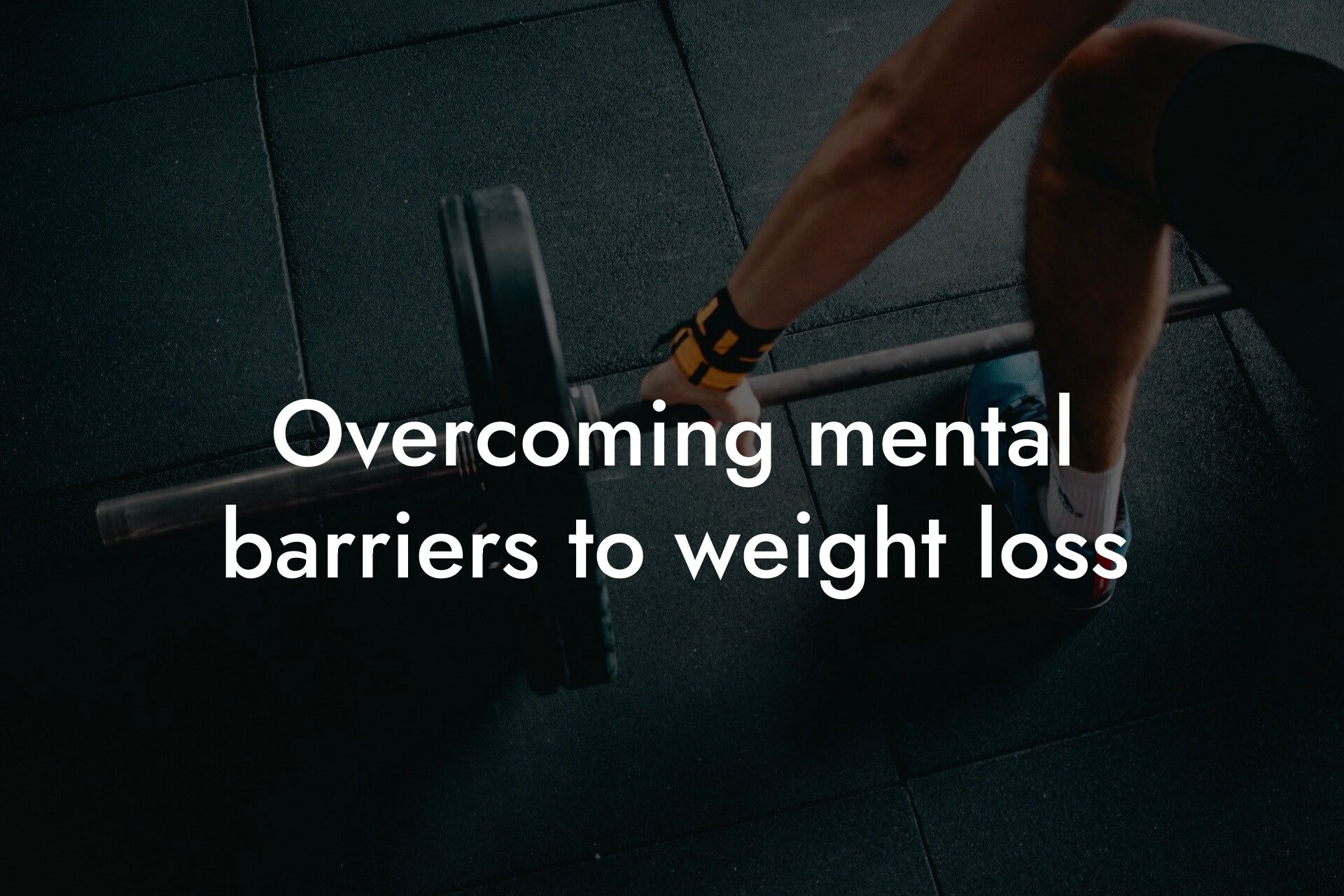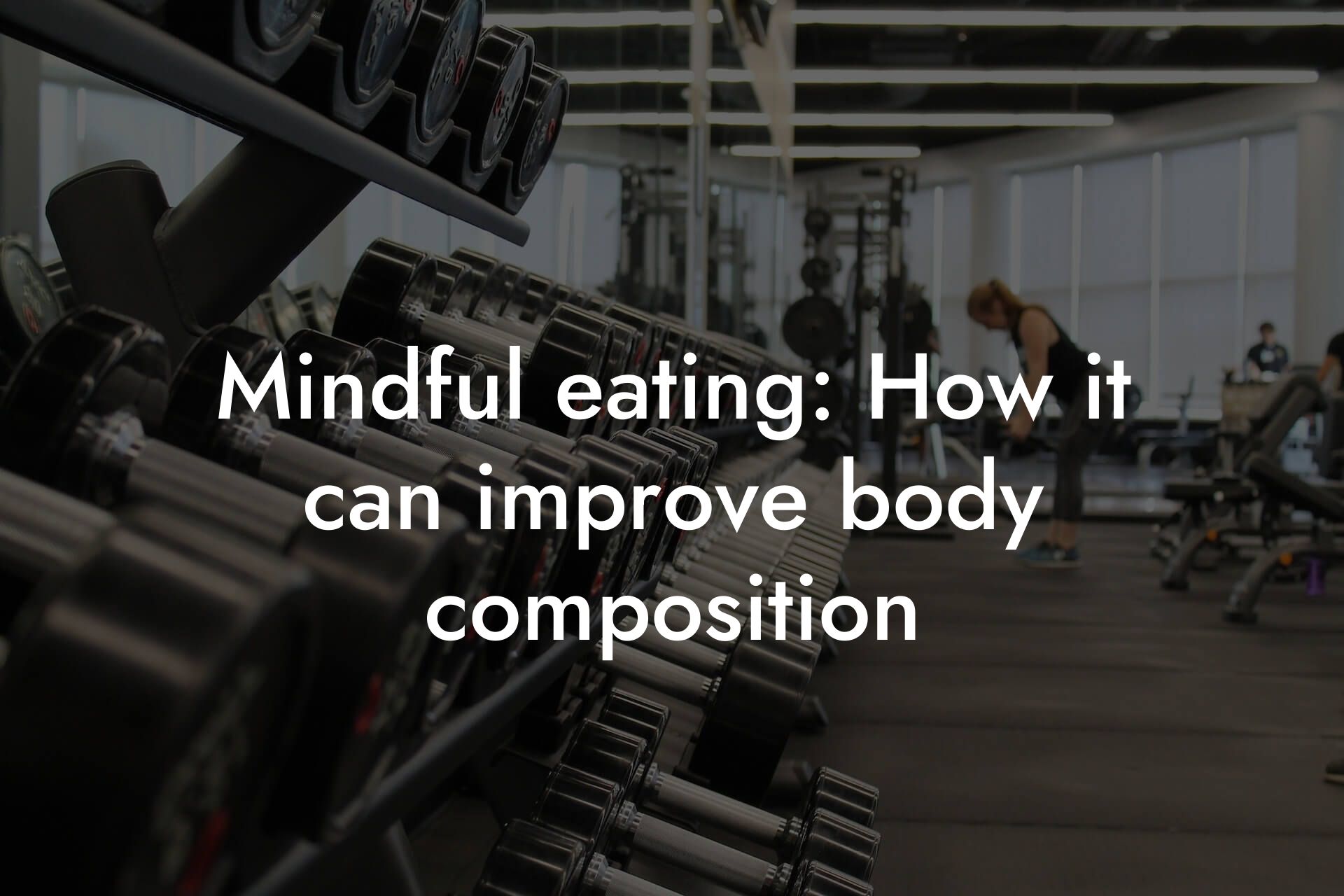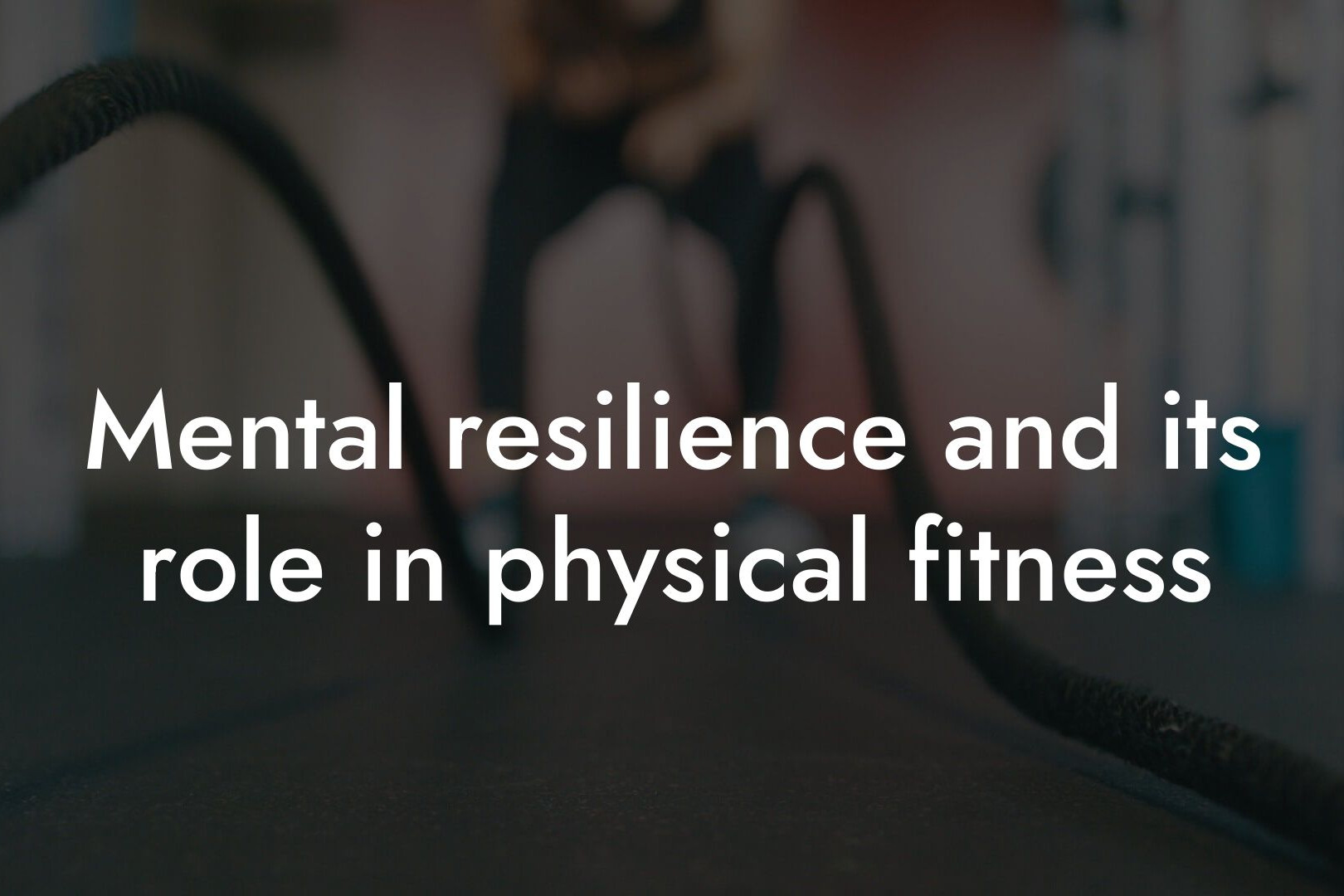As high-earning professionals, you understand the importance of maintaining a healthy physique and managing body fat. However, chronic stress can silently sabotage your efforts, leading to increased body fat storage and a range of other negative health consequences. In this article, we'll delve into the complex relationship between chronic stress and body fat, exploring the physiological mechanisms, health risks, and practical strategies for mitigating the impact of stress on your body composition.
Table of Contents
The Physiological Response to Chronic Stress
When you experience stress, your body's "fight or flight" response is triggered, releasing a cascade of hormones, including cortisol, adrenaline, and insulin. This response is designed to help you respond to immediate threats, but chronic stress can lead to a persistent state of hyperarousal, where your body remains in a state of high alert. Cortisol, in particular, plays a key role in regulating energy storage and metabolism, and chronically elevated levels can have a profound impact on body fat distribution and storage.
The Cortisol-Body Fat Connection
Cortisol promotes the storage of fat, particularly in the abdominal region, by increasing the activity of lipoprotein lipase, an enzyme that breaks down fat for storage. Additionally, cortisol stimulates the release of glucose from stored glycogen, which can contribute to increased insulin resistance and further fat storage. This can lead to a vicious cycle of weight gain, insulin resistance, and metabolic dysfunction.
The Impact on Metabolic Function
Chronic stress can disrupt metabolic function in several ways, including:
- Reducing insulin sensitivity, making it more challenging for glucose to enter cells, leading to increased blood sugar levels and fat storage.
- Increasing inflammation, which can impair metabolic function and contribute to insulin resistance.
- Disrupting the balance of gut bacteria, which plays a critical role in regulating metabolic function and body weight.
The Role of Gut Health in Stress-Related Body Fat
The gut microbiome plays a crucial role in regulating metabolic function, body weight, and stress response. Chronic stress can disrupt the balance of gut bacteria, leading to changes in the way your body processes and stores energy. This can result in increased fat storage, particularly in the abdominal region. Furthermore, an imbalance of gut bacteria can exacerbate the negative effects of chronic stress on metabolic function, creating a self-perpetuating cycle of weight gain and metabolic dysfunction.
The Link Between Chronic Stress and Visceral Fat
Visceral fat, also known as belly fat, is a type of fat that accumulates around the organs in the abdominal cavity. Chronic stress is a significant contributor to visceral fat storage, as cortisol promotes the deposition of fat in this region. Excess visceral fat is associated with a range of health risks, including insulin resistance, type 2 diabetes, cardiovascular disease, and certain types of cancer.
Practical Strategies for Managing Stress-Related Body Fat
While chronic stress can have a profound impact on body fat, there are several practical strategies you can implement to mitigate its effects:
- Prioritize stress management techniques, such as meditation, yoga, or deep breathing exercises, to reduce cortisol levels and promote relaxation.
- Engage in regular physical activity, such as resistance training and high-intensity interval training, to improve insulin sensitivity and metabolic function.
- Focus on a balanced diet rich in whole foods, fruits, vegetables, and lean protein sources, while limiting processed and high-sugar foods.
- Get adequate sleep, aiming for 7-9 hours per night, to help regulate cortisol levels and support weight management.
- Consider incorporating stress-reducing supplements, such as ashwagandha or omega-3 fatty acids, into your daily routine, under the guidance of a healthcare professional.
Chronic stress can have a profound impact on body fat, leading to increased storage and a range of negative health consequences. By understanding the physiological mechanisms underlying this relationship, you can take proactive steps to mitigate the effects of stress on your body composition. Remember, managing stress is a critical component of maintaining a healthy physique and achieving your fitness goals. By incorporating stress-reducing strategies into your daily routine, you can optimize your body's response to stress, promote weight loss, and improve overall health and well-being.
At Tano Performance Group, we understand the importance of achieving a healthy body composition. Our comprehensive body assessment using DEXA technology provides a detailed analysis of your body fat, bone density, and muscle mass, empowering you to make informed decisions about your health and fitness. Take control of your body composition today and schedule your DEXA scan with us.
Frequently Asked Questions
What is chronic stress, and how does it affect my body?
Chronic stress is a prolonged state of stress that can last for weeks, months, or even years. It can be caused by various factors such as work-related pressure, financial issues, relationship problems, or health concerns. Chronic stress can affect your body in many ways, including increased production of cortisol, a hormone that promotes fat storage, particularly in the abdominal area. This can lead to weight gain, bloating, and an increased risk of chronic diseases like diabetes and cardiovascular disease.
How does chronic stress impact my body fat percentage?
Chronic stress can increase your body fat percentage by promoting fat storage, particularly in the midsection. This is because cortisol, the "stress hormone," stimulates the production of insulin, a hormone that regulates blood sugar levels. When insulin levels are high, your body stores more fat, especially in the abdominal area. Additionally, chronic stress can lead to overeating and poor food choices, further contributing to weight gain and increased body fat.
What are the common signs and symptoms of chronic stress?
Common signs and symptoms of chronic stress include fatigue, insomnia, digestive problems, headaches, anxiety, depression, and mood swings. You may also experience physical symptoms like tense muscles, tightness in the chest, and rapid heartbeat. If you're experiencing any of these symptoms, it's essential to take steps to manage your stress levels and maintain a healthy lifestyle.
How can I reduce chronic stress in my life?
There are several ways to reduce chronic stress in your life. These include practicing relaxation techniques like meditation, deep breathing, or yoga, engaging in regular exercise, getting enough sleep, and maintaining a healthy diet. You can also try journaling, talking to a friend or therapist, or taking breaks throughout the day to reduce stress. Prioritizing self-care and setting realistic goals can also help you manage stress more effectively.
What is the link between cortisol and belly fat?
Cortisol, the "stress hormone," plays a significant role in the storage of belly fat. When you're under chronic stress, your body produces more cortisol, which stimulates the production of insulin, a hormone that regulates blood sugar levels. Insulin promotes fat storage, particularly in the abdominal area, leading to increased belly fat. Additionally, cortisol can break down muscle tissue, which can further contribute to weight gain and increased body fat.
Can chronic stress cause weight gain?
Yes, chronic stress can cause weight gain. When you're under stress, your body produces more cortisol, which promotes fat storage, particularly in the abdominal area. Additionally, chronic stress can lead to overeating and poor food choices, further contributing to weight gain. Stress can also disrupt your metabolism, making it more challenging to lose weight and maintain weight loss.
How does chronic stress affect my metabolism?
Chronic stress can disrupt your metabolism, making it more challenging to lose weight and maintain weight loss. When you're under stress, your body produces more cortisol, which can slow down your metabolism. Additionally, chronic stress can lead to changes in your appetite and food choices, further contributing to weight gain and metabolic problems.
What are the long-term effects of chronic stress on my body?
The long-term effects of chronic stress on your body can be severe. Chronic stress can increase your risk of chronic diseases like diabetes, cardiovascular disease, and obesity. It can also lead to mental health problems like depression and anxiety, and can negatively impact your sleep quality, digestion, and immune function. Chronic stress can also accelerate aging and reduce your overall quality of life.
Can exercise help reduce chronic stress?
Yes, exercise can help reduce chronic stress. Regular exercise can reduce cortisol levels, improve mood, and enhance overall well-being. Exercise can also improve sleep quality, reduce anxiety and depression, and increase self-esteem. Additionally, exercise can provide a healthy distraction from stressful thoughts and situations, helping you manage stress more effectively.
What are some stress-reducing exercises I can try?
There are several stress-reducing exercises you can try, including yoga, Pilates, walking, jogging, cycling, and swimming. You can also try relaxation techniques like progressive muscle relaxation, visualization, and deep breathing exercises. Additionally, activities like tai chi, qigong, and meditation can help reduce stress and promote relaxation.
How can I manage stress at work?
Managing stress at work requires a combination of self-care, time management, and boundary setting. Prioritize your tasks, take regular breaks, and practice relaxation techniques like deep breathing or meditation. Set realistic goals, communicate effectively with your colleagues and manager, and learn to say "no" to tasks that are not essential. Additionally, consider implementing stress-reducing activities like yoga or meditation classes at work.
What are some healthy snacks I can eat to reduce stress?
Healthy snacks like nuts, seeds, fruits, and vegetables can help reduce stress. These snacks are rich in nutrients, fiber, and antioxidants, which can help regulate blood sugar levels, improve mood, and reduce anxiety. You can also try stress-reducing herbs like ashwagandha, passionflower, or chamomile tea to promote relaxation.
Can chronic stress affect my bone density?
Yes, chronic stress can affect your bone density. Chronic stress can disrupt your hormone balance, leading to changes in your bone metabolism. This can result in bone loss, osteoporosis, and an increased risk of fractures. Additionally, chronic stress can lead to changes in your appetite and food choices, further contributing to bone loss and osteoporosis.
How can I reduce stress and improve my overall well-being?
Reducing stress and improving your overall well-being requires a holistic approach. Prioritize self-care, engage in regular exercise, get enough sleep, and maintain a healthy diet. Practice relaxation techniques like meditation, deep breathing, or yoga, and engage in activities that bring you joy and fulfillment. Additionally, prioritize your relationships, set realistic goals, and take breaks throughout the day to reduce stress and improve your overall well-being.
What are some stress-reducing supplements I can take?
There are several stress-reducing supplements you can take, including ashwagandha, omega-3 fatty acids, GABA, and melatonin. These supplements can help regulate cortisol levels, improve mood, and reduce anxiety. However, it's essential to consult with a healthcare professional before taking any supplements, especially if you're taking medications or have underlying health conditions.
Can chronic stress affect my relationships?
Yes, chronic stress can affect your relationships. Chronic stress can lead to irritability, mood swings, and emotional reactivity, making it challenging to communicate effectively with your partner, friends, and family. Additionally, chronic stress can lead to feelings of isolation and disconnection, further straining your relationships. It's essential to prioritize self-care, communicate openly with your loved ones, and seek support when needed.
How can I prioritize self-care when I'm busy?
Prioritizing self-care when you're busy requires intention and creativity. Start by scheduling self-care activities into your daily planner, such as meditation, exercise, or reading. Take breaks throughout the day to stretch, move your body, or practice deep breathing exercises. You can also try micro-self-care activities like taking a relaxing bath, getting a massage, or enjoying a cup of tea. Remember, self-care is not a luxury, it's a necessity.
What are some stress-reducing activities I can do with my partner?
There are several stress-reducing activities you can do with your partner, including yoga, meditation, walking, or simply spending quality time together. You can also try couples' massage, cooking classes, or engaging in a hobby together. Additionally, prioritize communication, intimacy, and emotional connection to reduce stress and strengthen your relationship.
Can chronic stress affect my skin?
Yes, chronic stress can affect your skin. Chronic stress can lead to inflammation, skin sensitivity, and acne. It can also cause skin conditions like eczema, psoriasis, and rosacea to flare up. Additionally, chronic stress can lead to premature aging, wrinkles, and age spots. Prioritize self-care, maintain a healthy diet, and engage in stress-reducing activities to promote healthy, glowing skin.
How can I manage stress during the holidays?
Managing stress during the holidays requires planning, self-care, and boundary setting. Prioritize your tasks, set realistic goals, and learn to say "no" to commitments that are not essential. Engage in stress-reducing activities like meditation, exercise, or yoga, and maintain a healthy diet. Additionally, prioritize quality time with loved ones, and focus on what truly matters during the holiday season.
What are some stress-reducing techniques I can try during a stressful situation?
There are several stress-reducing techniques you can try during a stressful situation, including deep breathing exercises, progressive muscle relaxation, and visualization. You can also try grounding techniques like focusing on your five senses, or using positive self-talk to calm your mind and body. Additionally, prioritize self-care, take breaks, and seek support when needed to manage stress more effectively.
Can chronic stress affect my immune system?
Yes, chronic stress can affect your immune system. Chronic stress can suppress your immune function, making you more susceptible to illness and infection. Additionally, chronic stress can lead to inflammation, which can further compromise your immune system. Prioritize self-care, engage in stress-reducing activities, and maintain a healthy diet to promote a strong and resilient immune system.
Here are some related articles you might love...
- Overcoming mental barriers to weight loss
- Mindful eating: How it can improve body composition
- Mental resilience and its role in physical fitness
- The role of visualization in achieving fitness goals
- How meditation supports physical health
- The psychology of body image among professionals
- Body positivity vs body optimization: Finding balance
- Cognitive-behavioral strategies for fitness success
- How stress management improves body composition
Zak Faulkner
Zak Faulkner is a leading authority in the realm of physical health and body composition analysis, with over 15 years of experience helping professionals optimise their fitness and well-being. As one the experts behind Tano Performance Group, Zak has dedicated his career to providing in-depth, science-backed insights that empower clients to elevate their physical performance and overall health.
With extensive knowledge of DEXA technology, Zak specializes in delivering comprehensive body assessments that offer precise data on body fat, muscle mass, bone density, and overall physique. His expertise enables individuals to make informed decisions and achieve their fitness goals with accuracy and confidence. Zak’s approach is rooted in a deep understanding of human physiology, combined with a passion for helping clients unlock their full potential through personalised strategies.
Over the years, Zak has earned a reputation for his commitment to excellence, precision, and client-focused service. His guidance is trusted by top professionals who demand the best when it comes to their health. Whether advising on fitness programs, nutritional strategies, or long-term wellness plans, Zak Faulkner’s insights are a valuable resource for anyone serious about taking their health and fitness to the next level.
At Tano Performance Group, Zak continues to lead our Content Team revolutionising how professionals approach their physical health, offering unparalleled expertise that drives real results.




